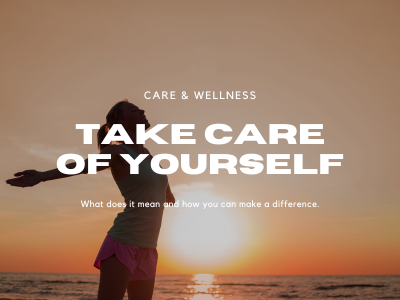Jul 5th, 2024
People often think about wellness in terms of physical health — nutrition, exercise, weight management, etc. — but it's so much more.
In one PubMed Central article, wellness is described as encompassing 8 mutually interdependent dimensions: physical, intellectual, emotional, social, spiritual, vocational, financial, and environmental (NIH National Library of Medicine).
- Physical: caring for your body to stay healthy now and in the future.
- Intellectual: expanding knowledge and skills or growing intellectually by exploring curiosity and lifelong learning.
- Emotional: caring for your feelings, values, and attitudes while managing your emotions in a healthy way and staying optimistic about your life.
- Social: maintaining healthy relationships by caring for others and contributing to your community.
- Spiritual: finding purpose, value, and meaning in your life with or without organized religion.
- Vocational: engaging in work that provides personal satisfaction and life enrichment that is consistent with your values, goals, and lifestyle.
- Financial: managing your resources to live optimally within your means, and making informed financial choices that contribute to your short and long term needs.
- Environmental: understanding how your social, natural, and built environments affect your health and well-being; and demonstrating commitment to a healthy community and planet.
The Right Choices
What have you done lately to nurture wellness in your life and that of others? Wellness necessitates good self-stewardship for ourselves and for those we care about and who care about us.
Making the right choices for health and well-being can be challenging, but what you do and how you do it is influenced by many factors. By focusing on these two, you can maximize the probability for success:
- Self-regulation: "our ability to direct our behavior and control our impulses so that we meet certain standards, achieve certain goals, or reach certain ideals” (Psychology Glossary). Self-regulation requires more energy.
- Habits: “a behavior that is recurrent, is cued by a specific context, often happens without much awareness or conscious intent, and is acquired through frequent repetition” (Bette Than Before: Mastering the Habits of Our Everyday Lives). Habits require less energy but are powerful and the key to wellness. With about 40% of our everyday behavior repeated in the form of habits, they shape our very existence, including great influence on health, well-being, and quality of life.
With self-awareness and an openness to try different strategies, you can cultivate the self-regulation and habits that work best for you. Some examples of strategies include scheduling, increasing or decreasing convenience, using distractions, rewards, and treats; pairing activities, or leveraging a system of accountability. Successful habit change requires the coordination of multiple strategies to establish a single new behavior; and new habits, on average, take 66 days to form so the takeaway is — the more strategies used, the better.
Whatever your process, you are empowered to improve care and wellness in your life. Think about your answer to these questions: “Are you going to accept yourself or expect more from yourself?”, “Are you going to embrace the present or consider the future?”, and “Are you going to care about yourself or overlook yourself?”. Don’t worry about getting it perfect; just get it going, and become the best kind of person you can be.
Source: Dimensions of wellness: Change your habits, change your life (PMC)

